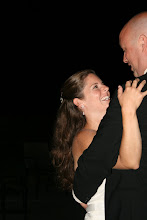Dana Boyd's article entered my life at the perfect time. I feel that her article helped me work through some of my own thoughts and questions about SNS's.
I have watched my aunt and cousin work through rules about Facebook and social networking sites. My aunt warns my cousin constantly about the repercussions of doing something "stupid" and having it come back to haunt her. At 15 my cousin is struggling with the idea that when she goes to college or applies for a job someone will be able to access her Facebook page and see what kind of person she is. Fortunately she has a person in her life who is talking to her about this issue. If she was not getting this education at home, who else would be talking to her about it? From what I understand, there are not a lot of discussions at her school about SNS behavior. Boyd offers helpful advice to educators on how to talk to students about social networking without lecturing about the dangers.
Before I read the Boyd article I was thinking about how sites like Facebook are teaching teens about socializing and relationships. I have defended SNS's numerous times to teachers and parents about Facebook and it's benefits. I have said very similar words to Boyd in regards to this issue. Boyd says that there is a lot of "informal learning" that happens outside of school that is essential to teens. Facebook is where that learning is now happening. My cousin had to learn how to deal with a breakup over Facebook instead of in the hallway at school. This breakup ended up working in her favor because once her network of people found out about it, they joined together and posted comments about the situation. This group also posted many comments on his wall about his behavior. The FB breakup provided a space for friends to express themselves publicly about what happened. There was also no "he said she said" debate because the conversation was posted for everyone to see. So much for private conversations!
As far as my own Facebook experience, I have loved every minute of it. I have reconnected with old friends and am able to see what is happening in their lives. I also enjoy posting pictures of my life for my network of friends and family to view. I use Facebook as a tool to stay connected to people. Sometimes I use a more
voyeuristic approach although occasionally I will post a status update and new information about myself. Since I am a school librarian I always keep in mind that students might be able to see my profile at some point. My privacy settings are set so only Friends can see anything about me however I am searchable by anyone. I want to be found but I want to be in charge of who is able to view information about me. This is what works for me at this point in my life.

There was a news commentary on wnyc radio last week about two college students who were slandered by fellow students on some website or other (it could have been facebook) and they were haunted by these ugly allegations throughout school all the way into their professional lives. One woman was turned down for a job by 16 law firms and her suspicion was that these firms had all had googled her and read the remarks defaming their character.
ReplyDeleteAnd no matter how much they tried to get the website to take down these slanderous comments, going so far as to hire lawyers, the website refused to do so. It's disturbing to think that your future can be impacted to such a degree by attacks upon your character, true or false you they will follow you. Dana Boyd cites the term "persistent" (and not always in a good way) in her article about information that is put into the web.
I know it's cold comfort for your cousin to hear that she's not alone in going through this kind of (public) pain at the hands of someone she trusted. Has she thought of maybe creating a support group with others who've had similar experiences?